Lean on me: The farmer in Kenya empowering vulnerable women
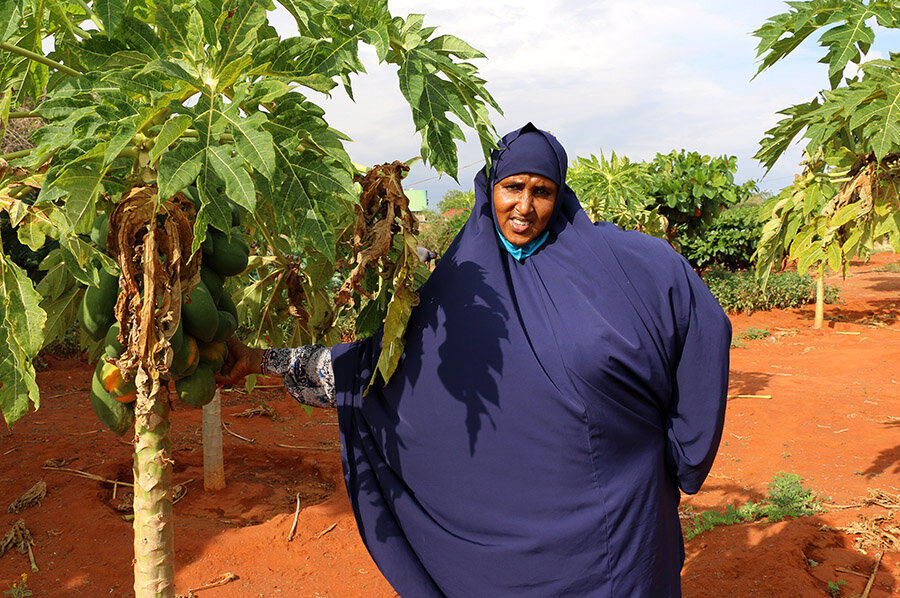
“My religion does not allow me to fill my stomach when my neighbour is hungry,” says Habiba. “So, I must help as many as I can with the little that I have. To me, this is sadaqah [the Islamic notion of 'voluntary charity'].”
The 45-year-old farmer is an influential figure in Wajir, capital of Wajir County in the arid north-east region of Kenya.
The World Food Programme (WFP) is partnering with the government of Wajir County to ensure that farmers like Habiba can access the technical expertise they need to diversify their livelihoods. In Kenya, WFP assists some 390,000 people with livelihood initiatives — 51 percent are women.
Habiba describes herself as a community activist “with a heart for helping other women”.
A mother of seven, she is currently sheltering 14 women from hunger. Together, they form the Habiba Farmers Group.
Men will ask, 'Why invest in her education when she will get married and leave anyway'
“As a leader , as a mother , I don’t have money to give them,” she says. “I decided to open my farm [to vulnerable women].”
In 2000, Habiba bought just over 3 acres of farmland. She worked for a local charity sensitizing the community on issues of gender and women’s empowerment. She is determined to protect women from the abuse she's witnessed over the years.
“In our culture, women are generally not given the recognition they deserve”, she says — “even in this modern day.”
Habiba’s group was formed in 2017. A devastating drought in the north of the country killed livestock, leaving families destitute. Women were ever more vulnerable.
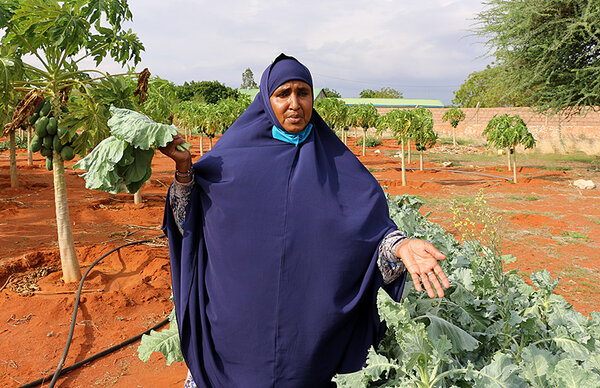
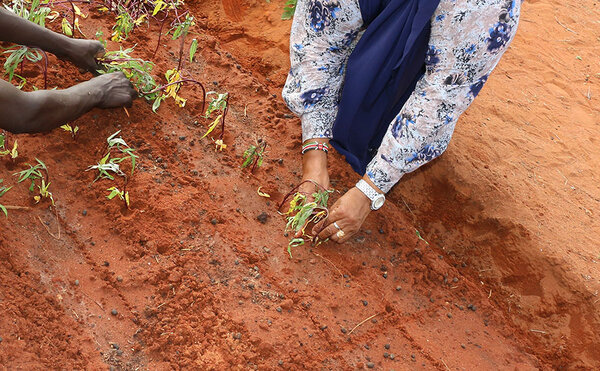
“It is degrading when a woman cannot afford to buy [menstrual] pads because she has no money or property of her own,” says Habiba. “Others, especially the young girls, have nothing to return home to and they can be easily lured into drugs, enticed to join extremist groups.” They also face violence and sexual attacks, she says.
“In this [Somali] community, educating girls is still seen as a waste of resources,” she says. “The men will ask, 'Why invest in her education when she will get married and leave anyway?’”
Women in El Salvador: 'Failed crops? We'll make hammocks'
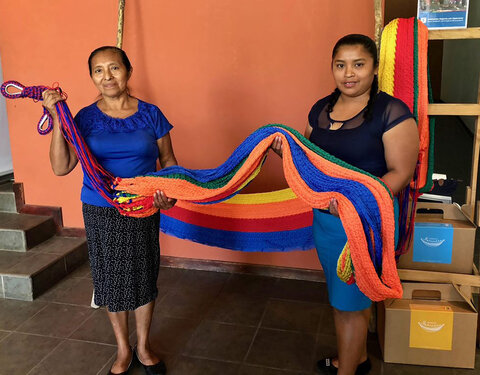
Facing such attitudes, many girls end up married early and with little or no education. They rely on their husbands for everything — a situation that leaves them vulnerable to abuse.
Fardosa is one of the members of the Habiba Farmers Group. She is 23 years old, or so she guesses. She has been married for five years and has three children. She never went to school, not even for a day, just because she was born a girl. She was married off at the age of 15 to a donkey-cart operator.
Now she lives in a shantytown on the outskirts of the town. Her husband collects firewood from the nearby thickets and sells it in homes or at the local market to make an income. Fardosa knew no other way of life until she met Habiba.
Pressing need
“Normally we meet as a group once a week and deliberate on matters affecting the group,” says Habiba. “We are not due to meet again until next week — but Fardosa wanted to meet me at the farm today, which means she must have a pressing need.”
As Habiba suspects, Fardosa’s supplies have run out and she's come to see if she can get some tomatoes.
“Group members are free to harvest produce, especially the kale and tomatoes. We grow these [vegetables] to give members healthy diets,” says Habiba.
Fardosa is pleased. “Now, my children eat well because of this farm,” she says. She has been a member for about two years. “I get free vegetables here. I also get some cash every month which I use to buy other food items like flour.”
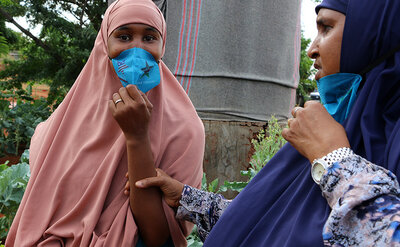
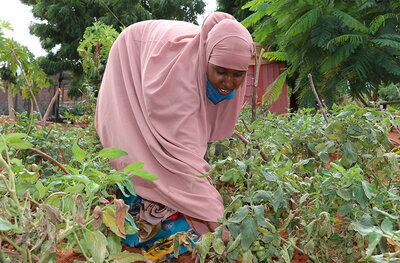
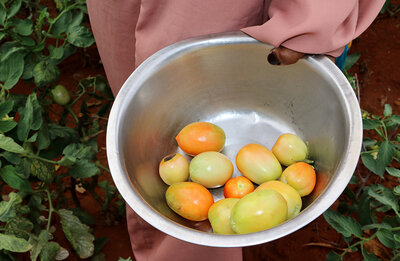
In addition to growing kale, spinach and tomatoes, the group farms pawpaw and watermelon.
At the end of every month, the women meet and go through the books of accounts with the help of 25-year old Farhiya, the secretary of the group. Whatever profit is made from the sales is shared out.
This shared profit is what Fardosa uses to meet her other household needs.
On average, each member takes home 5,000 Kenyan shillings (US$45).
'I am a graduate, but I haven’t found a job — Habiba brought me here to help keep records. It keeps me occupied and I earn some money'
Using this cash, some of the women have been able to branch out into different livelihood activities, including running small businesses. For example, six members of the group have opened restaurants using savings made from Habiba’s farm.
“Some of our members run eateries in town, but in 2020, coronavirus hit their businesses,” says Farhiya. “When the restaurants closed, the members started selling fresh produce from the farm so that they could continue earning a living.”
“Any member who is in need can come here and collect fruits or vegetables and sell at the market,” says Habiba. “If they make a sale of 100 shillings [US$0.90], they keep 30 shillings and remit 70 shillings to the group.”
Habiba’s farm makes around US$900 each month. After paying the farmhand and the electricity charges for pumping water from the shallow well to the crops, the group always makes a profit.
“This farm is a sanctuary for us all,” says Farhiya Ahmed. “I am a graduate, but I haven’t found a job — Habiba brought me here to help keep records. It keeps me occupied and I earn some money.”
Farhiya is the first of nine children brought up by a town labourer and a housewife and educated through bursaries. Today, she is helping her parents feed the family.
Hatching a plan
Habiba has big dreams for the group.
“We have to set up a poultry farm,” she says. “If we can raise enough to set up a hatchery and start selling day-old chick, birds for meat, and eggs, I’m sure that each of us will be taking home a handsome pay at the end of every month.”
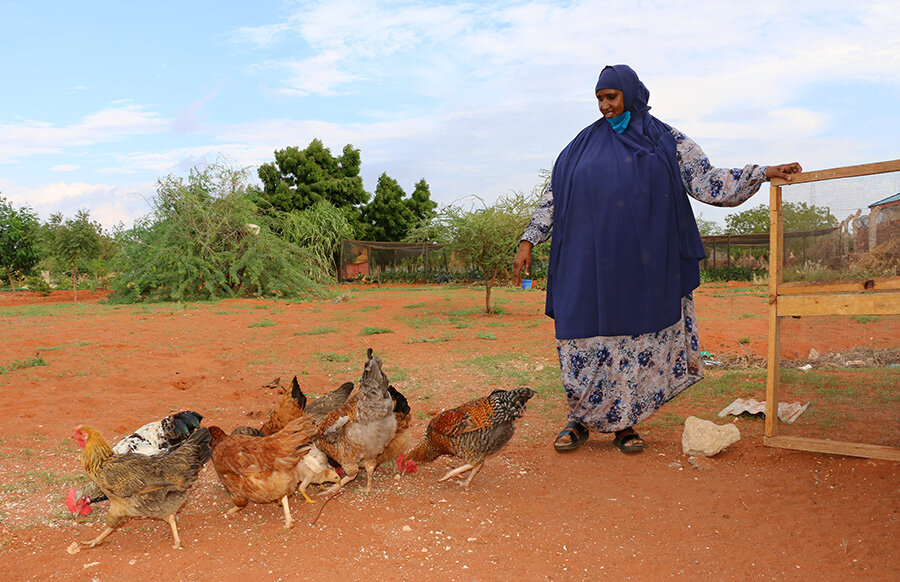
“We work in partnership with national and county governments as an enabler of development,” says Lauren Landis, WFP Kenya’s country director. “Our main role is to help the government to deliver food and nutrition security for all Kenyans while remaining at hand to respond to emergencies.”
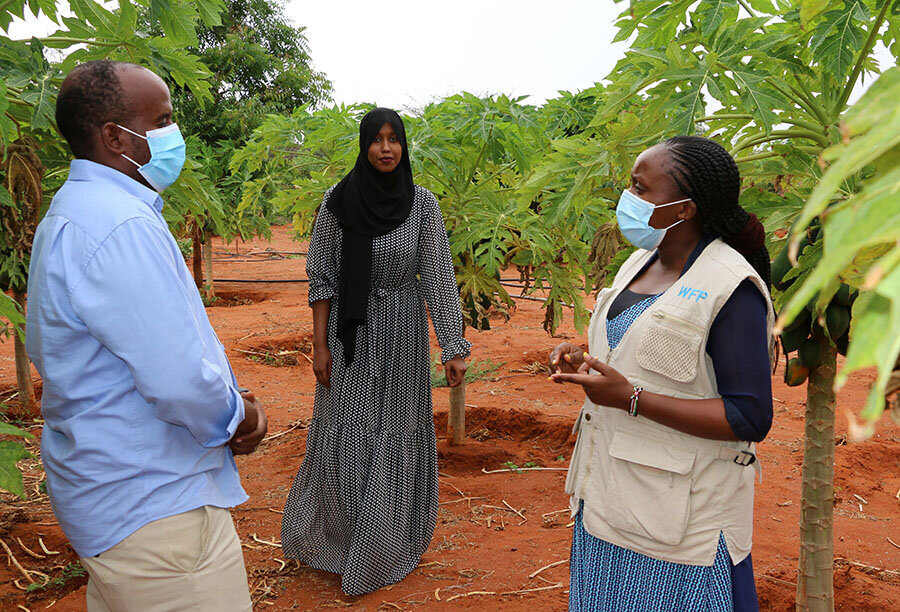
Adan Rago Hassan is Wajir County’s Livestock Health Officer and has designed a hatchery for Habiba’s group and is ready to support them in the construction of it once the necessary funds have been raised.
“Every time we want to introduce a new crop or face any challenge, we call the county advisers to help,” says Habiba.
Habiba has faith that each member of the group, whether young or old, schooled or not, will flourish under her wings and eventually soar to greater heights.
